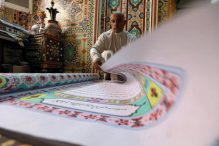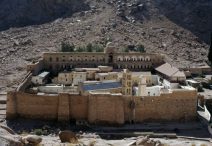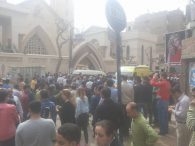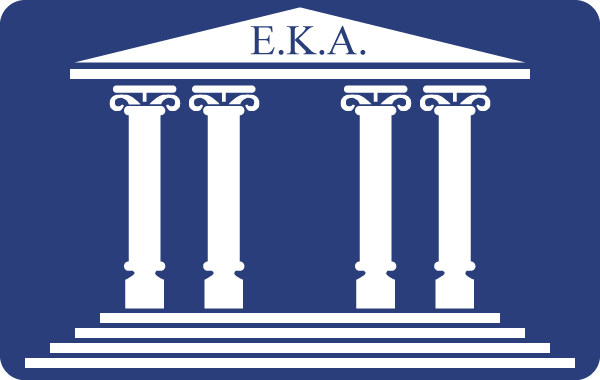Category: EGYPT
-

Egyptian artist hopes for record with 700-meter Koran
An Egyptian artist who educated himself after dropping out of school has spent three years creating what he hopes is the world’s biggest Koran. Saad Mohammed, who has hand-painted Islamic motifs on the walls and ceilings of his home in the town of Belqina, north of Cairo, has reproduced the Muslim holy book on a…
-

Egyptian archaeologists unearth tomb of 18th Dynasty magistrate in west Luxor
An Egyptian archaeological mission in Luxor has announced the discovery of a major tomb in the city’s west bank area dating back to the 18th Dynasty and containing priceless artefacts. Mostafa Waziry, Director General of Luxor Antiquities, told reporters on Tuesday that the tomb, which was unearthed in the Deraa Abu El-Nagaa necropolis, most likely…
-

Gunmen Kill Police in Attack Near Egypt’s Iconic St. Catherine’s Monastery
Gunmen attacked security forces near St. Catherine’s Monastery in Egypt’s south Sinai on Tuesday, killing at least one police officer and injuring four others, the Health Ministry said, just a week after two deadly church bombings killed 45. Islamic State claimed responsibility for the attack on a police checkpoint about 800 meters (yards) from the…
-

21 Killed in Church Bomb Attack in Egypt’s Tanta
A bomb exploded Sunday at St. George’s church in Egypt’s Al Gharbeyya governorate, killing and injuring dozens. The explosion in Tanta left 21 dead and 42 injured, according to state-owned Al-Ahram newspaper. According to preliminary reports in state media, a bomb had been placed inside the church underneath a seat. In response to the attack, an emergency room…
